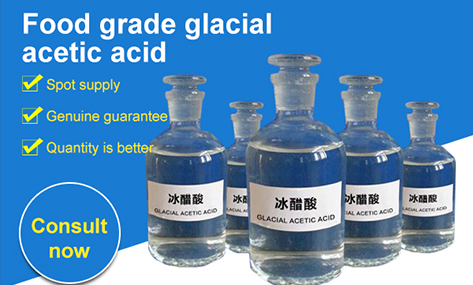
Aug . 08, 2024 05:20 Back to list
Exploring the Role of Glacial Acetic Acid in Pharmaceutical Applications and Its Importance
The Role of Glacial Acetic Acid in Pharmaceuticals
Glacial acetic acid (GAA), a pure and concentrated form of acetic acid, is a colorless liquid with a pungent smell and a variety of applications in multiple industries. Among these, its role in the pharmaceutical sector is particularly significant. This article explores the diverse uses of glacial acetic acid in pharmaceuticals, including its applications as a solvent, a reagent, and a key component in the synthesis of various compounds.
As a Solvent
One of the primary uses of glacial acetic acid in pharmaceuticals is as a solvent. Many active pharmaceutical ingredients (APIs) are either poorly soluble in water or require an organic solvent for proper dissolution. GAA's ability to dissolve a wide range of substances makes it an invaluable medium in drug formulation processes. Moreover, its high boiling point allows for its use in high-temperature reactions, ensuring effective solvation without evaporation loss. This property is crucial when developing stable formulations for various dosages, including injectables, tablets, and topical applications.
As a Reagent
In addition to its role as a solvent, glacial acetic acid serves as a vital reagent in pharmaceutical chemistry. It is commonly used in esterification reactions, where it reacts with alcohols to form esters—important compounds in numerous pharmaceutical applications. For instance, the formation of acetylated derivatives increases the biological activity of certain drug molecules. By modifying the chemical structure of APIs, GAA can enhance their efficacy or alter their pharmacokinetics, making them more effective for therapeutic use.
glacial acetic acid uses in pharma

Moreover, glacial acetic acid is employed in the synthesis of various intermediates, providing a pathway for the development of complex pharmaceutical compounds
. Its reactivity allows chemists to create specific functional groups necessary for the biological activity of new drugs, facilitating the drug discovery and development process.pH Adjustment and Preservation
GAA also plays a role in adjusting pH levels in pharmaceutical formulations. Many pharmacological agents require specific pH conditions to maintain stability and efficacy. The addition of glacial acetic acid can help achieve the desired acidity, ensuring that the active ingredients remain effective throughout their shelf life. Its function in buffer solutions is crucial for maintaining the integrity of intravenous solutions and other sterile products, where pH can significantly impact drug stability and patient safety.
Additionally, glacial acetic acid has antimicrobial properties, making it beneficial as a preservative in some formulations. Its ability to inhibit the growth of bacteria and fungi helps extend the shelf life of certain medications, ensuring they remain safe and effective until use.
Conclusion
In summary, glacial acetic acid is a multifunctional compound with a broad spectrum of applications in the pharmaceutical industry. Its capabilities as a solvent, reagent, pH adjuster, and preservative significantly contribute to drug formulation, synthesis, and stability. As the pharmaceutical industry continues to evolve, the need for versatile and effective chemicals like glacial acetic acid remains paramount. Its enduring presence in pharmaceutical processes underlines the importance of this simple yet potent acid in the journey of drug development, ultimately playing a crucial role in improving patient health outcomes.
-
SmartAgri Solutions - Precision Farming&Soil Monitoring
NewsJul.13,2025
-
Industrial Solutions-Example Inc.|Smart Manufacturing&Energy Efficiency
NewsJul.13,2025
-
Food Grade Glacial Acetic Acid-Pure Quality|High-Purity Acetic Acid,Food-Grade Chemical
NewsJul.13,2025
-
Industrial Efficiency Solutions-NextGen Technologies|Advanced Automation&Data-Driven Analytics
NewsJul.12,2025
-
Smart Manufacturing Solutions-Example.com|Enhance Efficiency&Reduce Costs
NewsJul.12,2025
-
Food grade glacial acetic acid
NewsMar.07,2025
